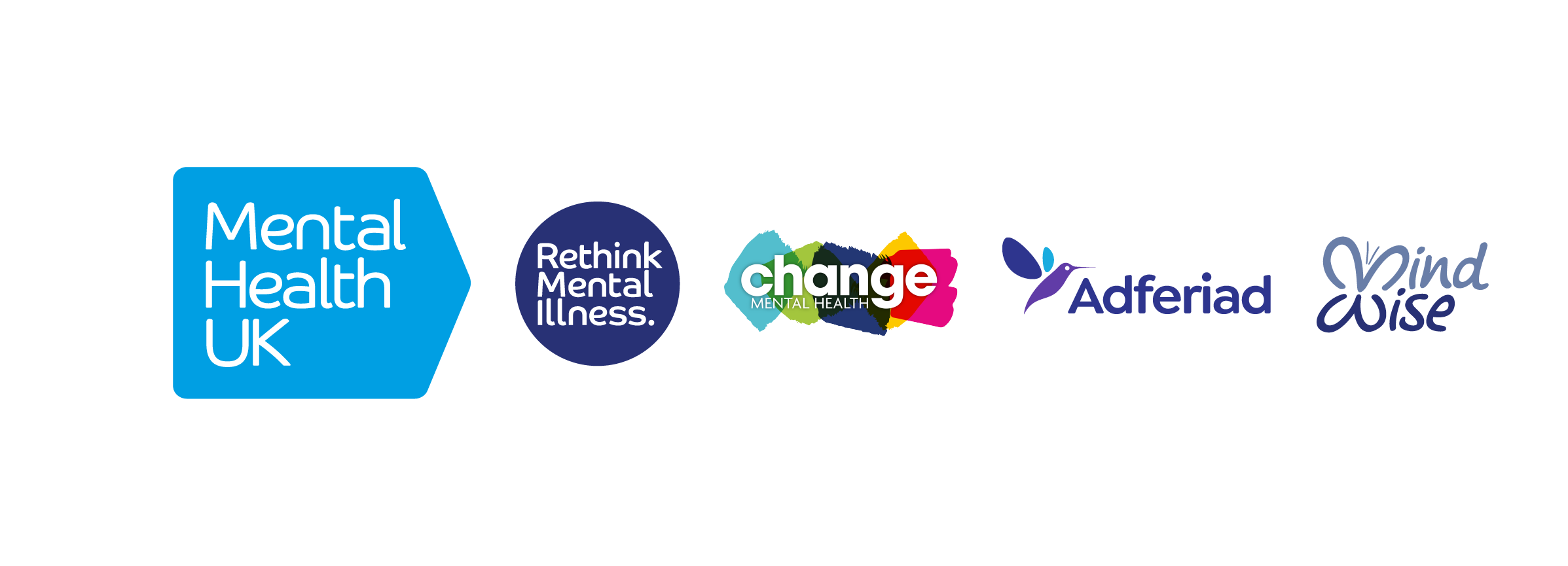- Home
- News & Blogs
- Current: Insights from 8th session of All Party Working Group on Mental Health
-
Who We Are
- Who We Are
- Our Story
- Our Strategy
- Our Impact
- Our People
- How We Spend Our Money
-
Join Our Mission
- Join Our Mission
- Mental Health Support Worker (Housing) Carrick
- Mental Health Money Advice Officer
- Mental Health Support Worker (Housing) Abbeyside
- MACMILLAN and MINDWISE: FAMILY SUPPORT WORKER
- MACMILLAN and MINDWISE: SOCIAL WORK PRACTITIONER CANCER & MENTAL HEALTH
- MENTAL HEALTH MONEY ADVICE OFFICER (1)
- Wellness Team Lead
- MENTAL HEALTH SUPPORT WORKER- (Homelessness) - Inverary
-
What We Do
- What We Do
- MindWise Services
- News, Events & Blogs
- Compliments & Complaints
-
Campaigning & Lobbying
- Campaigning & Lobbying
- Making Mental Health Everyone's Business: Our Policy Priorities 2024 - 2027
- All-Party Group on Mental Health
- Sign our petition asking the Northern Executive to Wise Up! and fund children and young people's mental health support!
- Mental Health Policy Alliance
- Mental Health Charter
- Together For You
- Mental health training & coaching
- WiseMoves film series
- Social Value
-
Support Us
- Support Us
- Donate now
-
Volunteer
- Volunteer
- Northern Ireland Appropriate Adult Volunteer
- Event and Fundraising Volunteers - Northern Ireland
- Volunteer Moderator for Client Facebook Group
- Activities Volunteers - Lurgan, Newry, Banbridge, Kilkeel
- BSL Trained Befriending Volunteer - Carrickfergus
- Volunteer Walk Leader - Newry
- Volunteer Walk Leader - Banbridge, Lurgan
- Guitar Group Leader - Ballyclare
- Group Facilitator for the Beyond Bricks Programme
- Gardening Volunteers - Kilkeel
- Befriending Volunteer- Kilkeel
- Guitar Group Leader Belfast
- Befriending Volunteer - Antrim
- Arts and Crafts Volunteers - Banbridge
- Befriending Volunteers and Volunteer Drivers - Areas include Killyleagh, Newcastle, Ballynahinch, Rostrevor, Warrenpoint, Newry and Kilkeel
- Creative Writing Facilitator Volunteer - Kilkeel
- Event Volunteers for Children's Mental Health Awareness Events
- Activities Volunteers - Ballymoney/Ballycastle
- Fundraise for MindWise
- Corporate Partners
- Become a Member
- Virtual Fundraising Hub
- Info & Support
- Mental Health Conditions
- Mental Health Training
-
News & Blogs
- News & Blogs
- Categories
- 2019
-
2020
- 2020
- January
- February
- March
-
April
- April
- 5 tips for coping with coronavirus when you've got a mental health issue
- Coronavirus: money, benefits & debt
- MindWise support during social distancing
- "Down at MindWise" by the Ballyclare Music Group
- How Coronavirus Has Changed my Role as a Community Mental Health Worker
- MindWise welcome the appointment of a Mental Health Champion for Northern Ireland
- Being in lockdown when you live in supported housing
- May
-
June
- June
- Why Volunteering is Good for Your Mental Health
- Staying informed while protecting your wellbeing during Covid-19
- MindWise joins forces with government and charities to support mental wellbeing
- What it's like caring for someone with a mental illness in lockdown
- How our tenants are keeping busy during lockdown
- July
- August
- September
- October
- November
- December
-
2021
- 2021
- January
- February
-
March
- March
- How effective has the Health and Social Care response to COVID-19 been?
- MindWise partnering with Queen's University on new mental health study
- MindWise launches new service to support 11–13 year-olds and their parents
- Maternal mental health during the pandemic: a report
- MindWise response to strategy on supporting women in the justice system
- How to deal with debt collectors in Northern Ireland
- MindWise's response to the consultation for the Programme for Government
- Marking World Bipolar Day on March 30th
- April
- May
- June
- July
- November
- 2022
- 2023
-
2024
- 2024
-
January
- January
- New Year, Same Me: Practical Resolutions and Self-Care in 2024
- The Heart Behind the Lens: Margaret Cooke's MindWise Journey
- Children’s Mental Health Week 2024: Co-Production - My Voice Matters!
- Debunking Blue Monday: Navigating Mental Well-being Year-Round
- Understanding Mental Health in Families
- The Chilling Reality: Cold Homes and Mental Health
- A User-Friendly Guide to Understanding ADHD
- Petition - Wise Up! Fund Children and Young People's Mental Health Services
- February
-
March
- March
- International Women's Day 'Investing In Women: Accelerating Progress'
- Statement From Dr Gareth Mulvenna on Northern Ireland Audit Office Child Poverty Report
- International Day for Elimination of Racial Discrimination
- The Mental Health Foundation and the Maternal Mental Health Alliance launch Amplifying Maternal Voices Toolkit
- Are Panic Attacks Dangerous
- Understanding Bipolar Disorder
- April
- May
- July
- October
-
November
- November
- The Mental Health Policy Alliance response to the Draft Programme for Government 2024-2027
- Celebrating Our Trustees During Trustees Week
- MindWise Impact Report 2023-24
- Celebrating the Launch of A Day In The Life – An Inspirational Short Film by MindWise and esc films
- Welcoming the NI Justice Committee to Inverary House
-
December
- December
- The Hidden Struggles of Homelessness: Impact on Mental Health in Northern Ireland
- Calling All Schools, Sports Groups, and Youth Clubs: Empower Young Minds with Our "Know Yourself, Grow Yourself" Workshops!
- How MindWise Enhances Social Value in Northern Ireland
- Join Us for the Belfast Marathon and Support MindWise!
-
2025
- 2025
-
January
- January
- Health Matters: MindWise Collaborates with Local Businesses to Deliver Social Value
- MindWise Thanks Mayor of Causeway Coast and Glens for Continued Support
- MindWise at the Choice Project Launch: A Step Towards Addressing Health and Social Inequalities
- Reflecting on Progress: Christmas Visits 2024 Update
- Mental Health and Poverty in Northern Ireland: Urgent Call for Anti-Poverty Strategy
- February
- March
- April
- I need urgent help
- Donate
Do you need urgent help?
If you need to speak to someone right now, here are some confidential options which provide 24/7 support. If you're worried you might hurt yourself or someone else, please call 999, or go to your nearest A and E.
Childline
Helps anyone under 19 in the UK with any issue they’re going through. Childline is free, confidential and available any time, day or night.
0800 1111Samaritans
24 hours a day, 365 days a year. You don't have to be suicidal to call us
Insights from 8th session of All Party Working Group on Mental Health
Mon, 09 - October - 2023
In a recent session of the All Party Group on Mental Health's inquiry into mental health education and early intervention in schools, Paul Gilligan from St. Patrick's Mental Health Services, Dublin shed light on the critical role schools play in safeguarding and improving the mental well-being of children in the Republic of Ireland.
Paul emphasized that schools should not merely be centres for academic learning but also hubs for nurturing the mental health of children and young people. He stressed that a holistic education, encompassing academic, emotional, social, and physical dimensions, is essential for children's well-being. According to him, this well-rounded education is the key to ensuring that children benefit the most from their time in school.
In addition, Paul highlighted the importance of schools adopting a proactive approach in identifying early signs of mental health distress in students. He pointed out that an excessive focus on academic achievement or competitiveness can be detrimental to students' mental health, urging schools to prioritize a balanced approach.
During his presentation, Paul also provided an overview of various initiatives in the Republic of Ireland aimed at promoting mental health in schools. These included the School Self-Evaluation (SSE) process, Social, Personal & Health Education (SPHE), and the National Education Psychological Service (NEPS). He also introduced St. Patrick's Mental Health Services' awareness-raising and education campaign, 'Walk in My Shoes.'
While acknowledging some progress in the Republic of Ireland, Paul Gilligan expressed concern about the inadequacy of mental health provision. He noted that the challenges faced by teachers and young people are evolving into more complex and concerning issues.
To address these issues, Paul made several key recommendations:
- Conduct more evaluative studies of mental health programs to ensure their effectiveness.
- Establish dedicated and trained staff members within schools to support the mental health needs of students.
- Define specific standards for schools to follow while allowing flexibility to cater to the unique needs of their communities.
Paul's insights from this session underscore the significance of nurturing the mental well-being of children and young people within the educational system. By implementing these recommendations and prioritising a holistic approach to education, schools can become valuable contributors to the mental health of their students.
MindWise - Supporting and empowering people affected by mental health issues to live their best lives
Get In Touch
- Contact Us
Work With Us
- Current vacancies
How We Protect Your Data
- Privacy Policy
How We Spend Our Money
- Finances & Accounts
Become A Member
- Sign Up - It's Free
Staff login
- Staff website
Registered in Northern Ireland Number NI071976. Registered Office Pinewood House, 46 Newforge Lane, Belfast BT9 5NW. MindWise is the operating name of Mind Wise New Vision a company limited by guarantee and recognised by HM Revenue and Customs as a charity for tax purposes.
- Cookie Policy
- Privacy Policy
- Copyright 2025
- Website by the Web Bureau



